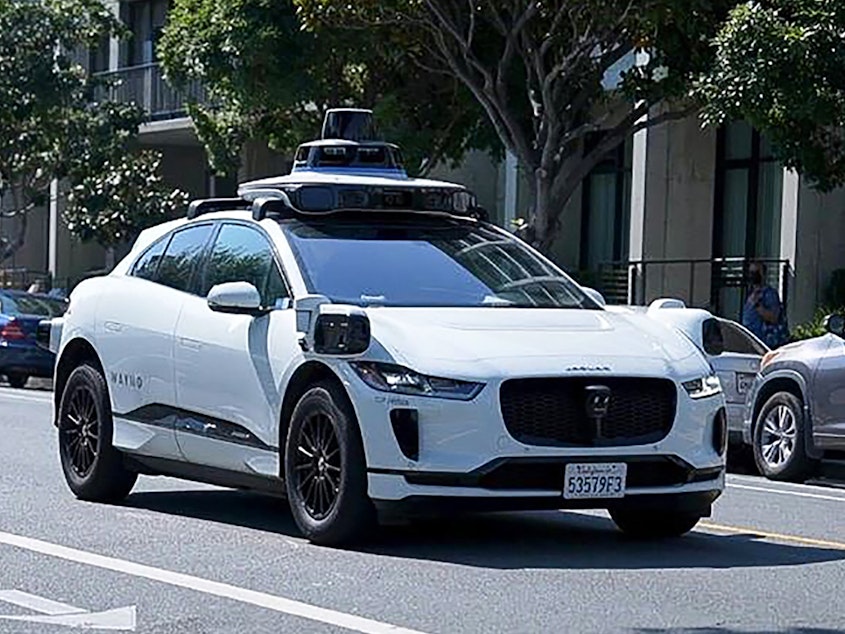Waymo's robotaxi service set to expand into Los Angeles

If you happen to be in Hollywood and see a car go by with no driver at the wheel, don't be alarmed. Around 50 driverless robotaxis are debuting across Los Angeles on Thursday, and supporters hope the ride in California's largest city won't be as bumpy as it's been in other parts of the state.
Waymo, part of Google's parent company, is responsible for the latest ride-share option. It started driving robotaxis in San Francisco last year. It also has them in Phoenix.
A promo video featuring Waymo employees on their first driverless rides in L.A. tried to generate excitement.
"I grew up in L.A. I'm a fourth-generation Angelino, and this was really special," says one of the passengers, as friends laugh. "Smooth and fun. Awesome and delightful."
Not so smooth and delightful for all Angelinos, though.
In the run-up to its L.A. debut, there have been lawsuits and protests by Teamsters members outside the company's local office in October. Labor leaders are concerned that the robotaxis will take away jobs and pose a danger to workers who drive emergency vehicles and even garbage trucks.
"It's clear that this technology is not ready to be introduced into our roads and our cities," says Yvonne Wheeler, president of the Los Angeles County Federation of Labor. And she says she doesn't want these cars in her town after seeing what happened in San Francisco. "Autonomous vehicles have been wreaking havoc wherever they go. From blocking fire trucks to crashing into buses, running over animals."
Much of the criticism in San Francisco involved driverless cars operated by the company, Cruise, which is owned by GM. The state shut it down in October 2023, citing safety concerns. One of Cruise's driverless cars struck a pedestrian in downtown San Francisco earlier that month.
Both Cruise and Waymo say their vehicles are far safer than human drivers and compared to humans they've had relatively few incidents. They say they've driven millions of driverless miles without any human fatalities or life-threatening injuries. An Uber self-driving car, operating in full autonomous mode and with a safety driver in the vehicle, killed a pedestrian in Arizona in 2018.
The state of California approved the L.A. permit earlier this month, much to the chagrin of local lawmakers, including Los Angeles City Council member Hugo Soto-Martinez.
"I think it's disastrous for this city," Soto-Martinez says. "It should be local leaders who should be making these decisions about people's public safety, not an unelected body."
He supports a state bill that's gaining momentum and would change the permitting power to local authorities.
"And so if we're going to allow vehicles that are as dependable as your local wi-fi, I think that's a mistake," Soto-Martinez says. [Copyright 2024 NPR]
